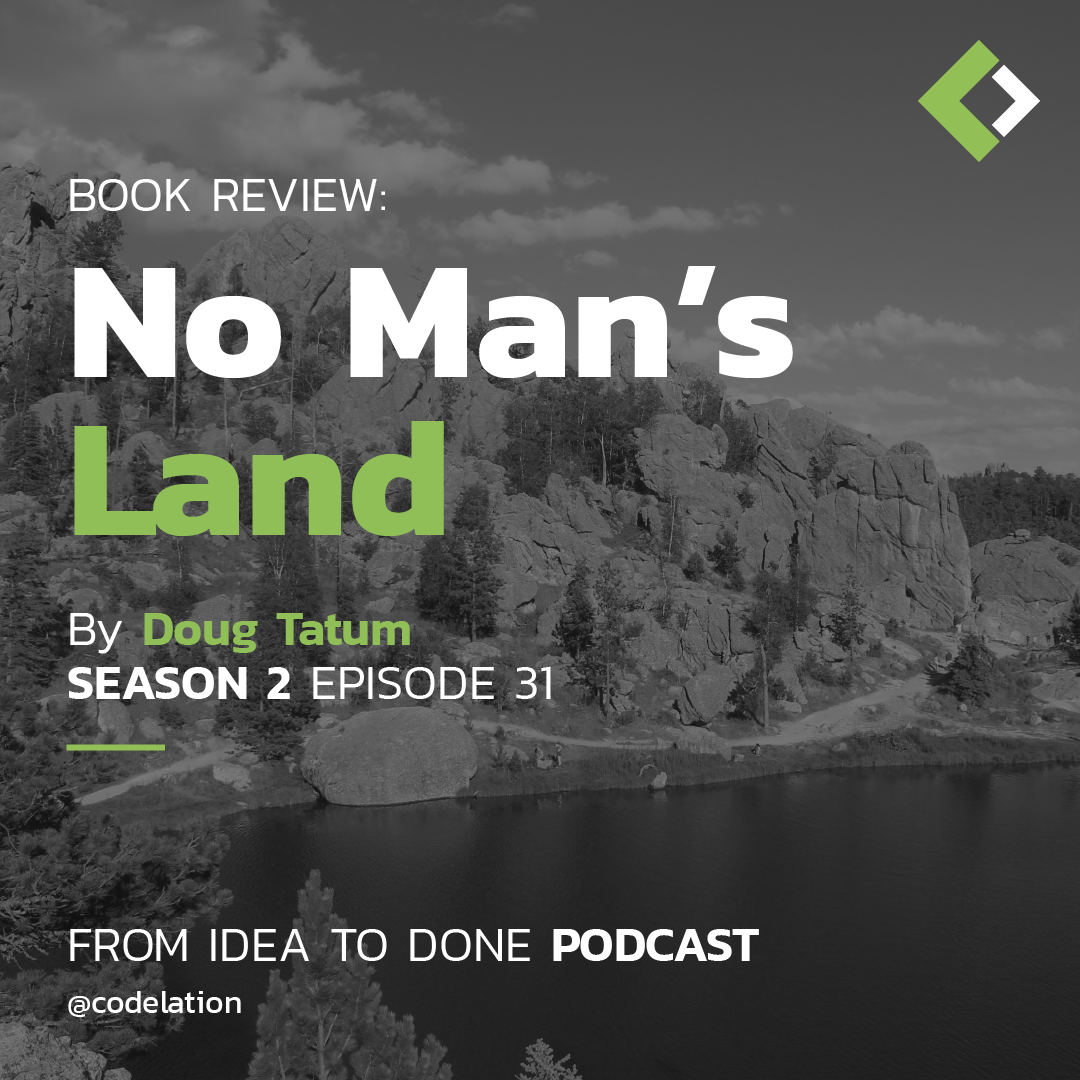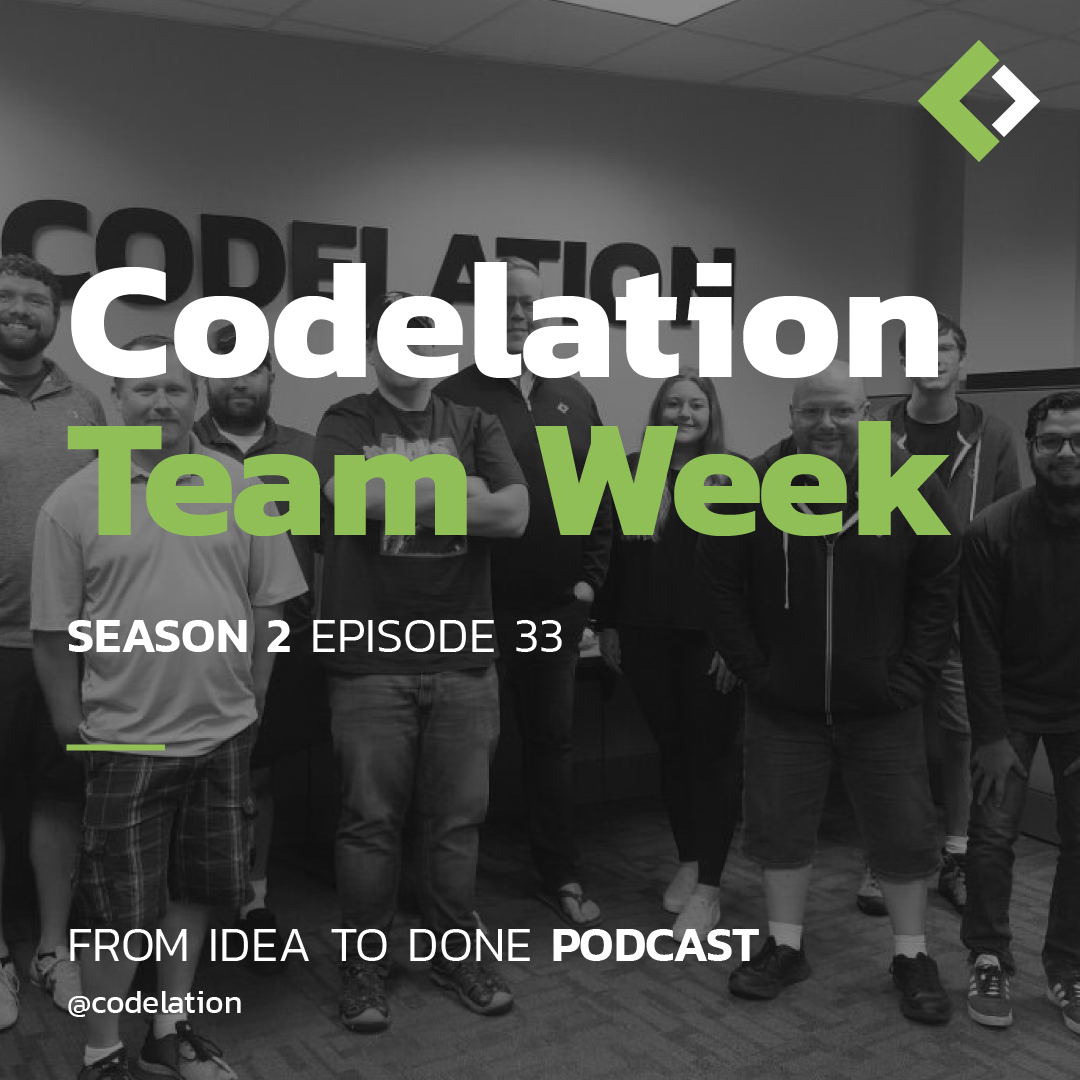Book Review: Giftology by John Ruhlin Pt. 1

Book Review: No Man’s Land By Doug Tatum
August 4, 2020
Codelation Team Week
August 18, 2020VO: Get ready for your semi-regular dose of random ideas from the guys at Codelation. We like to talk about big ideas companies that are winning, and those that aren't along with current events in our crazy world of software startups. So come along with Erick and Josh, who challenge you to think big, start small and turn your ideas into something on this episode of, from idea to done.
Josh: Hey everyone, I'm Josh
Erick: And I'm Erick and today's idea is a book review of Giftology by John Ruhlin. I think I said that, right, actually. So this kind of came about because one of our competitors sent us like a really nice referral and I'm doing air quotes on the word competitor, because no one can tell, cause we're on a podcast, but we we've talked about this before. I just really love our tight knit tech community in Fargo and companies in the same field here. We really work well together. And in the spirit of that community, we wanted to give our referral friend Camille a little gift, and I had a couple suggestions and an email for you. And you said, and you just put this book on my desk.
Josh: Um, I actually gave that for you to, you know, actually read,
Erick: Well it's on my to do list, but I figured as long as we're recording podcasts this afternoon, I could just get your thoughts on it before I dove in. And, and before getting into things, did we actually get Camilla a gift yet?
Josh: That's on my to-do list and she'll actually have it before this episode airs.
Erick: You've got one week. So yeah, in my head that should probably be on the top of our list. But yeah, unless there's some earth shattering things in this book that I didn't know, and I should know. So are there some earth shattering things that I should know, uh, from this book,
Josh: You know, I wouldn't say earth shattering, but there's definitely some things that this book made me approach differently from the difference between promotion and gifts. So, um, the, the first was make the gifts recipients inner circle happy, and you make them happy. So the concept of, you know, give a gift to my wife and not to me, therefore she's happier. I live a happier life. So see if you can get it into their inner circle or their family, and then also have it be part of everyday life. Don't have it be some weird, obscure thing that you take out on August the 14th for whatever August the 14th is. The second is gifting should be done with planned randomness. You are going to know when you're going to send gifts, but don't make it the stereotypical. I'm going to send a gift for Christmas or your birthday, make it random so that no one expects it. And it's really going to make more of an impact.
Erick: I think random surprises are way more awesome than "here's your valentine's day card wifey". Is that coming up? That I, now I am not married, so I not a good source of that.
Josh: Uh, the final thing is don't buy gifts that add to the clutter. I mean, if you're anything like me, I've got a drawer or a cabinet full of like shaker bottles and all sorts of stuff with people's logos on it. Um, and if you are putting your logo on something that's promotional item, that's not a gift to somebody. So just make sure you differentiate those two,
Erick: Right? I have an entire pile of swag that I have no idea what to do with that my desk, but, uh it's but I'm also all about gratitude. And we actually, we recently did a video series where I ran around to some of our Fargo business friends, throwing boxes of nerds at them. And they were called thank you nerds from thankful nerds. And I'm excited to learn a little bit more on how to give even better gifts. And I don't like to read books just to read books. So are there some like action items in this that I should be thinking about and taking this to our team members and our friends and our other customers right now?
Josh: Yes. I'll give you the tips. So you don't have to read the book, but I'm sure you will. Anyway, I will read the book. So even if you know, money is tight, um, our good handwritten thank you. Note is a really excellent first step. And I know Eric, that's something that you've been doing for quite awhile. Um, I also think there's something that we can expand on. So how can we learn more about the client, the partner, the friend, whoever it is that we're trying to gift and really know that they are into maybe say DC comics over Marvel. I'm not sure what sort of terrible person would make that sort of decision. But if we know that going into the business relationship, then we don't have to think of a gift for them. We just really have it waiting. We just have to get it put together. So I think just being proactive as a big part of it. Sure. And then, you know, is that something we can turn and focus in on the team? I know he gives an example of, um, giving everyone on his team, a monthly, like house cleaner to come to their house or apartment and take care of stuff, you know, should we be considering something like that to go once a month and help tidy up? Like, I know my wife would love that as a perk of the company.
Erick: All right. So we'll get someone in a Spiderman outfit to clean your house is to make your wife happy. I bet we're going down a weird rabbit hole. So any last thoughts, Josh?
Josh: Um, yeah, I think the, the takeaway I had from Giftology is it's, it's really a slow process. It's, uh, you're encouraging the relationship to develop over time. It's ongoing. It's, it's really about, you know, minimizing risk. If sometimes if you get a gift from somebody as there a string attached to it, you need to see that your intentions are genuine and there's there's no, there there's nothing there needed. You're saying thank you for something.
Erick: I think being genuine is probably the most important part of being. Thank you. And so I guess I'll dig into this and we can kind of get into my stuff in another episode. So thank you for being, or for the introduction, every book you ever just like randomly set on my desk and said, you should read, this has been good. So, and it's helped us as a company. So I'll, I'll, I'll do that.
Josh: Thanks for listening. We're hoping to have a startup that could use our advice and random thoughts, send them over to correlation.com to hear the next podcast.
Sign up to receive email updates
Enter your name and email address below and I'll send you periodic updates about the podcast.
